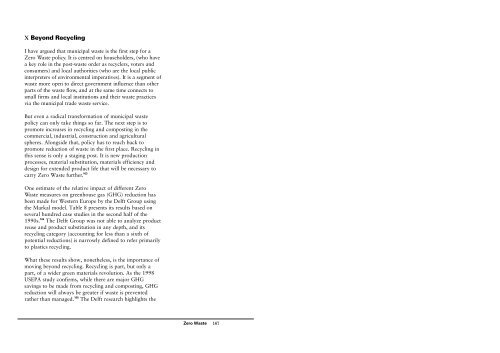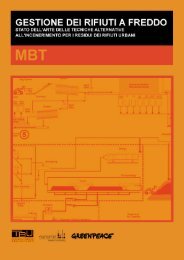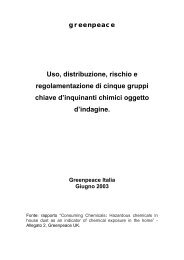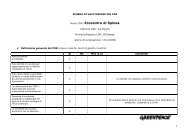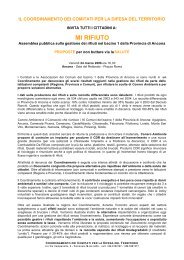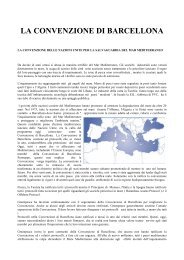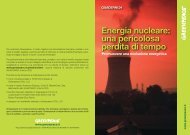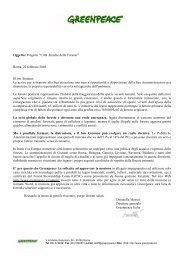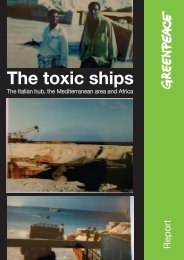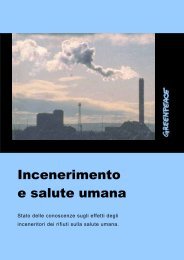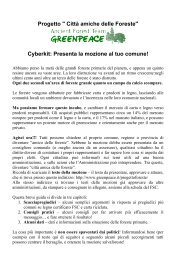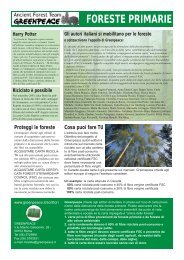Zero Waste by Robin Murray, Greenpeace Environmental Trust 2002
Zero Waste by Robin Murray, Greenpeace Environmental Trust 2002
Zero Waste by Robin Murray, Greenpeace Environmental Trust 2002
Create successful ePaper yourself
Turn your PDF publications into a flip-book with our unique Google optimized e-Paper software.
X Beyond Recycling<br />
I have argued that municipal waste is the first step for a<br />
Z e ro <strong>Waste</strong> policy. It is centred on householders, (who have<br />
a key role in the post-waste order as recyclers, voters and<br />
consumers) and local authorities (who are the local public<br />
i n t e r p reters of environmental imperatives). It is a segment of<br />
waste more open to direct government influence than other<br />
p a rts of the waste flow, and at the same time connects to<br />
small firms and local institutions and their waste practices<br />
via the municipal trade waste service.<br />
But even a radical transformation of municipal waste<br />
policy can only take things so far. The next step is to<br />
promote increases in recycling and composting in the<br />
commercial, industrial, construction and agricultural<br />
spheres. Alongside that, policy has to reach back to<br />
promote reduction of waste in the first place. Recycling in<br />
this sense is only a staging post. It is new production<br />
processes, material substitution, materials efficiency and<br />
design for extended product life that will be necessary to<br />
carry <strong>Zero</strong> <strong>Waste</strong> further. 103<br />
One estimate of the relative impact of different <strong>Zero</strong><br />
<strong>Waste</strong> measures on greenhouse gas (GHG) reduction has<br />
been made for Western Europe <strong>by</strong> the Delft Group using<br />
the Markal model. Table 8 presents its results based on<br />
several hundred case studies in the second half of the<br />
1990s. 104 The Delft Group was not able to analyze product<br />
reuse and product substitution in any depth, and its<br />
recycling category (accounting for less than a sixth of<br />
potential reductions) is narrowly defined to refer primarily<br />
to plastics recycling.<br />
What these results show, nonetheless, is the importance of<br />
moving beyond recycling. Recycling is part, but only a<br />
part, of a wider green materials revolution. As the 1998<br />
USEPA study confirms, while there are major GHG<br />
savings to be made from recycling and composting, GHG<br />
reduction will always be greater if waste is prevented<br />
rather than managed. 105 The Delft research highlights the<br />
<strong>Zero</strong> <strong>Waste</strong><br />
167


